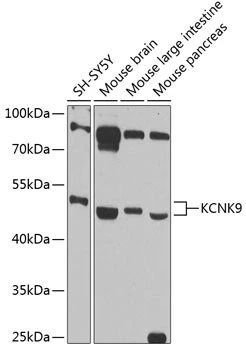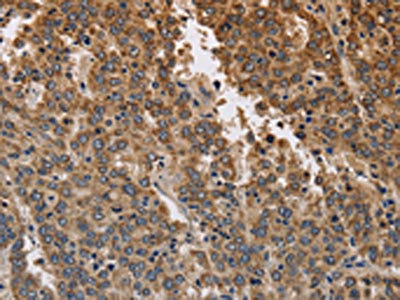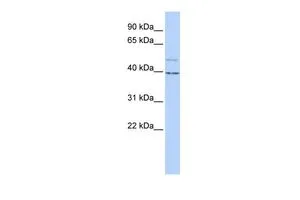
WB analysis of various sample lysates using GTX64833 KCNK9 antibody. Dilution : 1:1000 Loading : 25μg per lane
KCNK9 antibody
GTX64833
ApplicationsWestern Blot
Product group Antibodies
ReactivityHuman, Mouse
TargetKCNK9
Overview
- SupplierGeneTex
- Product NameKCNK9 antibody
- Delivery Days Customer9
- Application Supplier NoteWB: 1:500 - 1:2000. *Optimal dilutions/concentrations should be determined by the researcher.Not tested in other applications.
- ApplicationsWestern Blot
- CertificationResearch Use Only
- ClonalityPolyclonal
- ConjugateUnconjugated
- Gene ID51305
- Target nameKCNK9
- Target descriptionpotassium two pore domain channel subfamily K member 9
- Target synonymsBIBARS, K2p9.1, KT3.2, TASK-3, TASK3, TASK32, potassium channel subfamily K member 9, TWIK-related acid-sensitive K(+) channel 3, TWIK-related acid-sensitive K+ 3, acid-sensitive potassium channel protein TASK-3, potassium 2-pore domain leak channel TASK3, potassium channel, two pore domain subfamily K, member 9, two pore K(+) channel KT3.2, two pore potassium channel KT3.2
- HostRabbit
- IsotypeIgG
- Protein IDQ9NPC2
- Protein NamePotassium channel subfamily K member 9
- Scientific DescriptionThis gene encodes a protein that contains multiple transmembrane regions and two pore-forming P domains and functions as a pH-dependent potassium channel. Amplification and overexpression of this gene have been observed in several types of human carcinomas. This gene is imprinted in the brain, with preferential expression from the maternal allele. A mutation in this gene was associated with Birk-Barel dysmorphism syndrome. Alternative splicing results in multiple transcript variants. [provided by RefSeq, Jul 2017]
- ReactivityHuman, Mouse
- Storage Instruction-20°C or -80°C,2°C to 8°C
- UNSPSC41116161




